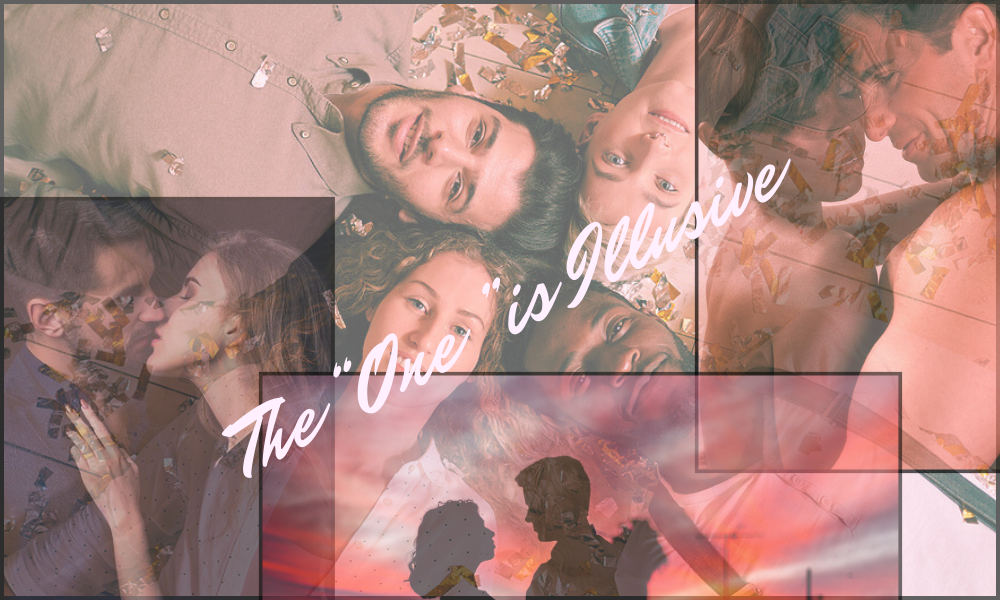
There is a default assumption with which we have grown up about romance and love. We have been educated (most of us) to believe that there’s one perfect fit for us and that, when we find it, that’s it. Even if it doesn’t work perfectly, we’re obliged to stick with each other and be “faithful” to each other, no matter what. She (or he) is “ours.” And even if we don’t actually see them as property in the traditional sense of the word, in many respects, we tend to behave as though they were.
Monogamy, Monogamish and Ethical Non-monogamy
Falling squarely under the heading of “nobody asked me but…” the notion that any two people can be all things to each other over the course of an entire lifetime of change borders on hopelessly naïve. Especially in our age of multiple, concurrent, interdependent paradigm shifts and in which most of us can expect to live three quarters of a century.
This is not to suggest happily ever after never happens. It does. But it is statistically rare. What’s more, the myth of faithfulness and monogamy is one of more recent construction. As a recent post on Medium, an online magazine to which I subscribe (and sometimes contribute) makes that point. Monogamy hasn’t always been the expectation, never mind the actual practice.
Anthropologists generally agree that humans, in common with most mammals, are not naturally monogamous. Disagreement over when and why monogamy became a practice is less unanimous. One theory suggests that monogamy emerged when we transitioned from hunter-gatherer nomadic tribes to fixed agricultural communities. A second theory suggests it goes further back, because monogamy had built-in survival advantages both for women and the offspring. Yet a third theory speculated that less competitive men began offering food to women for sexual favors and protection.
Irrespective of which theory seems most probable to you, it’s not hard to see how the changes of the last fifty years or so have eroded to some degree the practical efficacy of long-term pair bonding, other than (arguably) for raising children. I say arguably, because divorce rates today, even though they’ve been declining recently, still point out that remaining with one other human throughout a long adult life has less appeal than it might have a hundred years ago. A recent article relying on a 2023 study revealed that 43% of all first-time marriages end in divorce, while 63% of second and 73%of all third and subsequent marriages do.
This is not necessarily an indictment of permanent pair-bonding so much as it is of either our current lived reality or the readiness (in statistical aggregate) of most of us for that level and duration of commitment. In the end, if monogamy works for both of you, by all means. Have at it.
Romance and New Relationship Energy (NRG)
There is an alternative, however. Most of us recall that incredible rush of meeting for the first time, flirting and playing with the energy that accompanies most uncertainties. It’s exciting. And in a world where we’re both living longer (most of us) and there are fewer real risks without actively going out to seek them, the intense emotional rush of the chase is a way to step out of the mundane. Does everyone want that? No.
But if you’re one of those that does, there are fewer barriers to indulging those desires. The key to any form of ethical non-monogamy is dealing with jealousy buried in our subconscious and reinforced by our cultural norms. Our intimate partners are not chattels, and monogamy invites us to treat them that way and actually encourages us to take the other for granted or (at least) as being “ours.”
Eventually, most of us are going to recognize it that love isn’t a zero-sum experience and that, far from being a matter of possession, it is a matter of giving what the other(s) need as they give back with a generosity of heart and spirit so often lacking today. That can take a lot of different forms, but in the end, all of us who hope to help another experience fulfillment need to somehow cohere our actions to their wants and needs. Sometimes that may be monogamy. Sometimes it’s ethical non-monogamy, structured cooperatively by all those concerned. Both approaches to bonding are valid and no one needs to apologize for how they go through life as long as they are honest and do not treat others as merely a means to an end. Just one guy’s take on it. Make it a great day!

Great post. I really enjoyed it. Some thoughts I’d never considered, before.
Thanks, Michael. Glad you enjoyed. Make it a great day and stop by any time.
This is a pretty cool page. One of the best posts I’ve come across in quite some time. I hope to see more content like this.
Hello Canary…glad you enjoyed. Make it a great day.
Interesting take. Not sure I agree with everything you say in your article here, but it’s definitely thought-provoking. For me personally, I’m all about monogamy. But to each their own.
Thanks Selena: I get it ethical non-monogamy isn’t for everyone. But thanks for taking the time to read with an open mind. Make it a great day.
Interesting post. I like your take on romance and how we need to move beyond the notion romantic relations necessarily leading to possession. My wife and I have been in an open marriage for a number of years. Needless to say, we agree with you. I’m going to bookmark it so I can read more of your upcoming posts.
Thanks, Darien. Stay tuned. I have A LOT to say about what we’ve done to romance and the expectations we have collectively hung on the relationships that result. Make it a great day!
I haven?t checked in here for a while since I thought it was getting boring, but the last several posts are good quality so I guess I?ll add you back to my daily bloglist. You deserve it my friend 🙂
Hi Dave: Welcome back. I write on a number of topics and they’re not of interest to everyone. Glad you’ve found the more recent to your liking. Make it a great day.
My brother suggested I may like this website. He was totally right. This post especially made my day. You’re so right about our tendency to treat our relationship partners as property rather than autonomous humans is dead on! Thank you!
Hi Brad: It’s long been a heartfelt take of mine, explaining why I’ve opted for ethical non-monogamy. Thanks for taking the time to read and comment. Make it a great day.
I’d like to subscribe to your e-mail subscription newsletter. Do you have one? How may I subscribe? Thanks.
Hi Denzel: I do. scroll down to the bottom of any page on the site. There’s a sign-up letter on the footer of every page and post (including this one). Make it a great day!
Wow! Like your take on relationships and treating them like possessions. I’ll be back for more, ’cause it looks like you write about it quite a bit.
Thanks, Darisha. And yeah, I do go on about it…
Fantastic post. I’m going to show this post to my girlfriend. We’ve been living together and we’ve been exclusive for a while, but I’m getting restless, you know? We’re both bi and while I love her a lot I miss playing with a guy, sometimes. Not better, just different. Any ideas how a girl should pitch to another girl?
Hi Demelie: Lovely name, btw. Glad you enjoyed the post. I do understand the insistent pull of “variety” and the lure of the possible. I think we all feel it, at times. Insofar as I’m not a girl, I’d be a terrible advisor as to the specific approach, beyond being honest. It’s hard sometimes, but pay her the respect implicit in telling her how you feel. Make it a great day and best of luck.